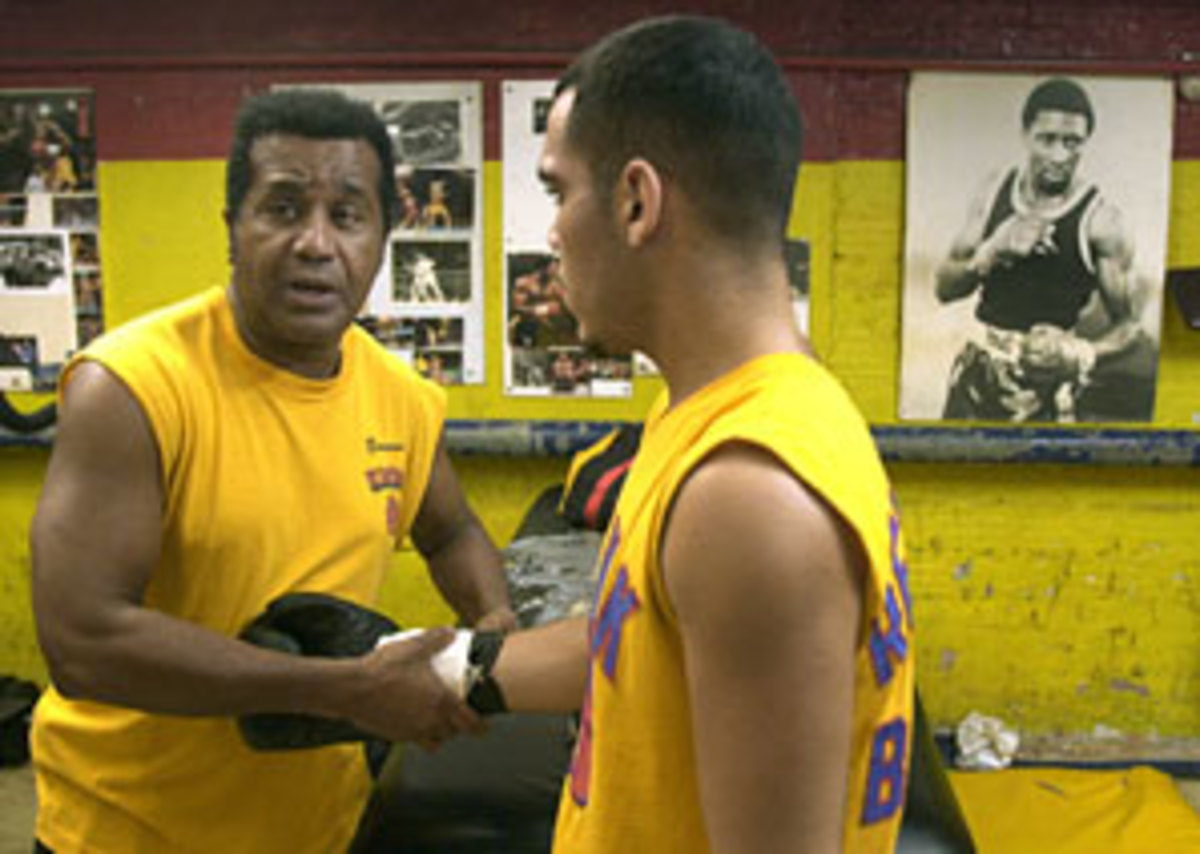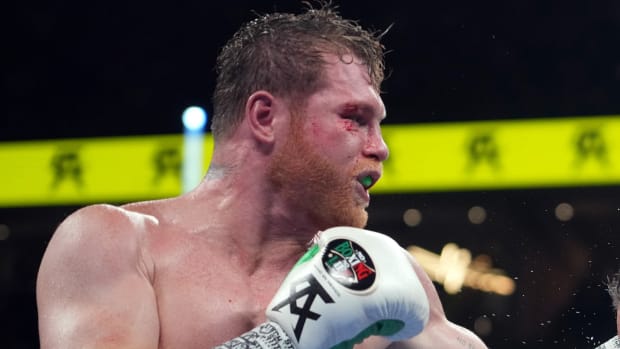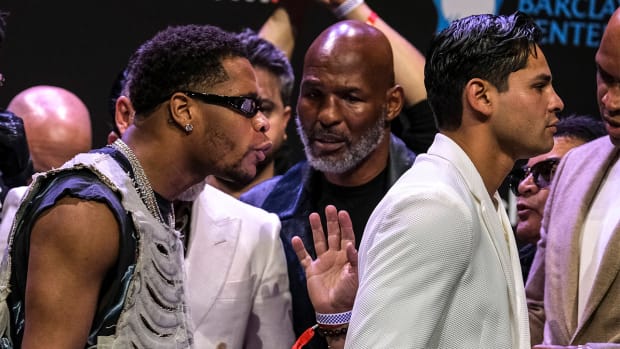Legendary trainer Emanuel Steward leaves behind rich legacy of accomplishment, dignity and grace
Renowned trainer Emanuel Steward (left) helped more than 40 fighters to world championships, operating with a dignity all sportsmen can aspire to. (AP)
“You know what Chris,” Emanuel Steward told me recently. “I really hope Chris Arreola gets his s--t together.”
It was last March, and Steward was sipping on a cup of coffee in a hotel ballroom in Dusseldorf, Germany, just days before his prized pupil, Wladimir Klitschko, was set to defend his heavyweight titles against Jean Marc-Mormeck. It wasn’t that Steward was especially excited about a fight with Arreola, a fringe contender who Klitschko would probably put down before the final bell; it was about where that potential fight would take place. Mormeck would be Klitschko’s seventh straight fight in Europe and, well, Steward was hoping he would find a fight on U.S. soil.
“I’d really like to fight closer to home,” Steward said. “New York, L.A., anywhere. Just home.”
Here’s the thing about Steward, who passed away on Thursday at the age of 68: He loved Klitschko, the man he morphed from a tall, chinny heavyweight into the most dominant big man of his era. But he loved everyone else the same. He loved Tony Harrison, his 22-year-old junior middleweight prospect, as much as he loved Tommy Hearns, loved Oscar De La Hoya as much as Lennox Lewis. He loved all the kids who came out of his famed Kronk gym. He bragged about his fighters like a father brags about his sons and he hated to be away from them for too long.
Steward will be remembered first as a brilliant trainer, then as a polished, insightful commentator but what I’ll remember most about Steward was that he was, undeniably, a good man. Anyone who has walked the halls of a Las Vegas hotel with Steward, who has watched it take him 50 minutes to go 50 feet because he is stopped so often to pose for a picture or sign someone’s shirt, all without a trace of complaint, knows this. Anyone who has worked a press room with Steward, who has watched him take the time to do interview after interview, whether it’s with Sports Illustrated, ESPN or a blogger with a camcorder, understands this.
Steward enjoyed arguing about his legacy, particularly his connection to the jab. Oftentimes when Steward’s name was connected to a fighter it’s because that fighter lacks that defensive, set-up weapon that Steward made Lewis and Klitschko so dangerous with. But Steward never wanted to be known as a finesse trainer, one content with decisions. Yes he taught the jab, Steward often told me. But he liked knockouts more.
In Detroit, Steward turned Kronk into a welterweight factory, churning out contender after contender like he was piecing them together from body parts of past legends. “They had a lineup of guys,” said promoter Bob Arum, “that was absolutely unbelievable.” But what many remember about Kronk was that with Steward, simply winning was not what it was all about.
“He tried to instill in all of them a sense of sportsmanship and camaraderie,” Arum said. “Manny would call me and say ‘Join me for dinner in Detroit.’ Well, he would have 20 to 30 people at dinner with us, mostly fighters from the Kronk gym. He was there for all of them.”
In his dying days Steward wanted to be there for Klitschko, to work his prized pupil’s corner when Klitschko fought Mariusz Wach on Nov. 10, to be a teacher one last time. He held out hope that his body would grant him one more chance to be there for someone he cared about. Klitschko knew his mentor was failing but he kept his cornerman spot open for weeks, hoping for a miracle. He knew Steward was almost gone but he could not close the door on that chapter of his life.
Steward is gone but his memory will remain, as strong as ever. The true measure of a man is how he he treats someone who can do him absolutely no good, and inside that oft repeated quote lives the reason why Emanuel Steward will be remembered as one of the most beloved men in boxing.
-- Chris Mannix






